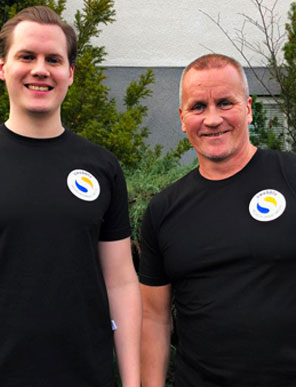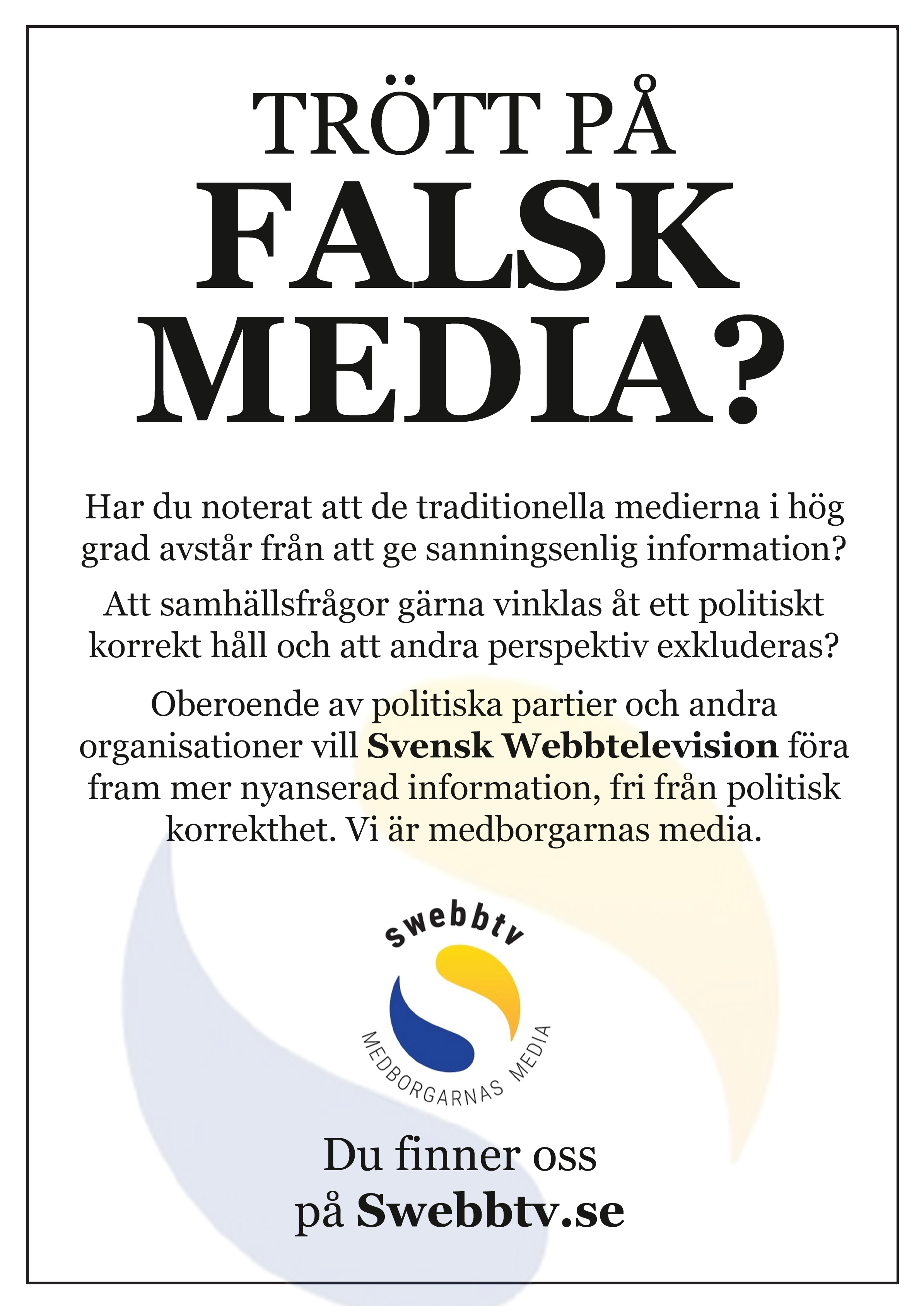In this program, we talk about Sweden's economy, about energy policy and the iniquitous energy tax. We conclude by commenting on the claims that the EU election is about resisting right-wing extremism.
Lars Bern gives a very pessimistic picture of the negative development of the Swedish krona. This will lead to demands that we switch to the Euro. And it is also a requirement under the Accession Treaty. The krona's value kept pace with the Swiss franc until the 1970s and Olof Palme's administration. Since then, the Swiss franc has revalued to ten times that of the krona. Lars Bern thinks that we should not expect any welfare in the future. The head of the EU Commission in Sweden, Katarina Areskoug Mascarenhas, defends in an article in Dagens Industri the sharp increase in the EU contribution.
She states that the EU fee is lower than the foreign aid budget. We note that these are two budget items that do not give Sweden much, and that this is a remarkable comparison. A few weeks ago, an estimated 4,000 people in central Stockholm demonstrated in support of poor pensioners and the homeless old people, and this was hardly reported in the regular media at all. Lars Bern thinks that the Social Democrats are worried that they are now even losing the pensioners' support.
Soon they will only have their voters in exclusion areas. If a Muslim party were to be formed, there is a clear possibility that both (S) and (MP) would implode. The number of Muslim voters has also resulted in problems with anti-Jewish sentiment during Mayday demonstrations. Isabella Lövin claims that wind power is cheaper than nuclear power. Lars Bern believes that this is completely wrong because wind power's intermittent operation means that you need to have another energy system as backup. Nor is solar energy an option for Sweden because our country is too far north. He believes that wind power is a significant threat to birds and insects and that Germany's investment in wind power is a huge failure because it has not reduced CO2 emissions. He believes that in the future we will see thousands of useless wind turbines standing and roasting in the forests and these no one will be able to afford to remove. The stigma of nuclear power and the lack of planning poses a considerable risk of electricity shortages.
The government's plans for "Steel without coal" would mean the need for two more nuclear power plants. The politicians talk about the transition to fossil-free, but have no idea how achieve it. Isabella Lövin also repeats her mantra that Sweden "should lead". Bern believes that this is due to our inferiority complex and that we cannot be the forerunner of everything. In addition, we also ask what it costs to lead.
What does the taxpayer gain from it? Guest cruise ships need to rely on their diesel generators because the Stockholm electricity grid cannot support their needs. It is strange that Stockholmers cannot be allowed to drive petrol-driven cars in the city centre of Stockholm when these vessels are allowed to be in the harbour next door producing large emissions in the same area.
Åsa Romson was commissioned by the government to look at the plans to ban the sale of petrol and diesel cars. She has concluded that this type of prohibition violates the EU rules on free markets in the EU. It is also strange that first Maria Wetterstrand and then Åsa Romson have been so employed by the government. Magdalena Andersson has claimed that not a penny of the increasing petrol price consists of tax, which is untrue since the petrol tax was raised no later than the turn of the year. The tax today is over SEK 10 per liter.
Climate taxes do not follow the principle taxation according to means, rather striking everyone roughly the same. The reason is that the government is constantly looking for new tax bases and the line that "Sweden leads" should be interpreted rather as "Sweden leads in strongly exploiting a new tax base", defended by "saving the climate". This means that those who have no financial margins are hit very hard. We conclude by listening to some statements from (C) and (S), which say that the EU election is about resisting right-wing extremism and the leaders in Poland and Hungary. This means that these parties are not prepared to accept the meaning of democracy because the leaders in Poland and Hungary have very strong popular support.

 Se alla program här >>>
Se alla program här >>>


